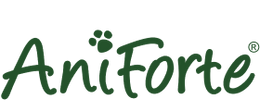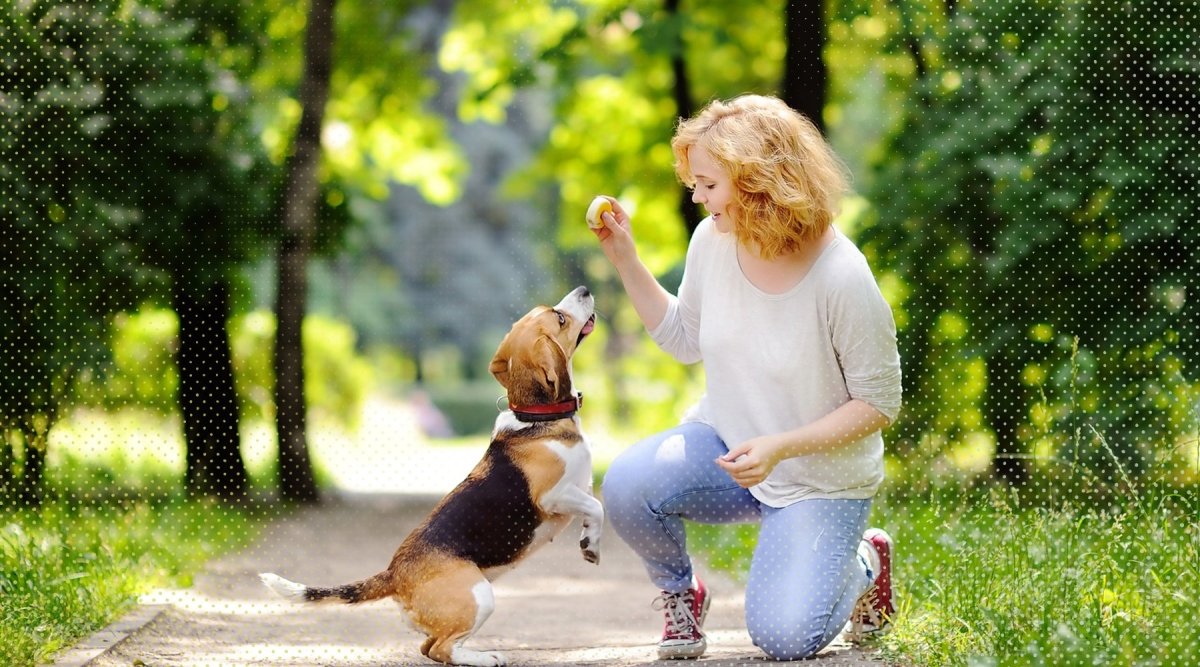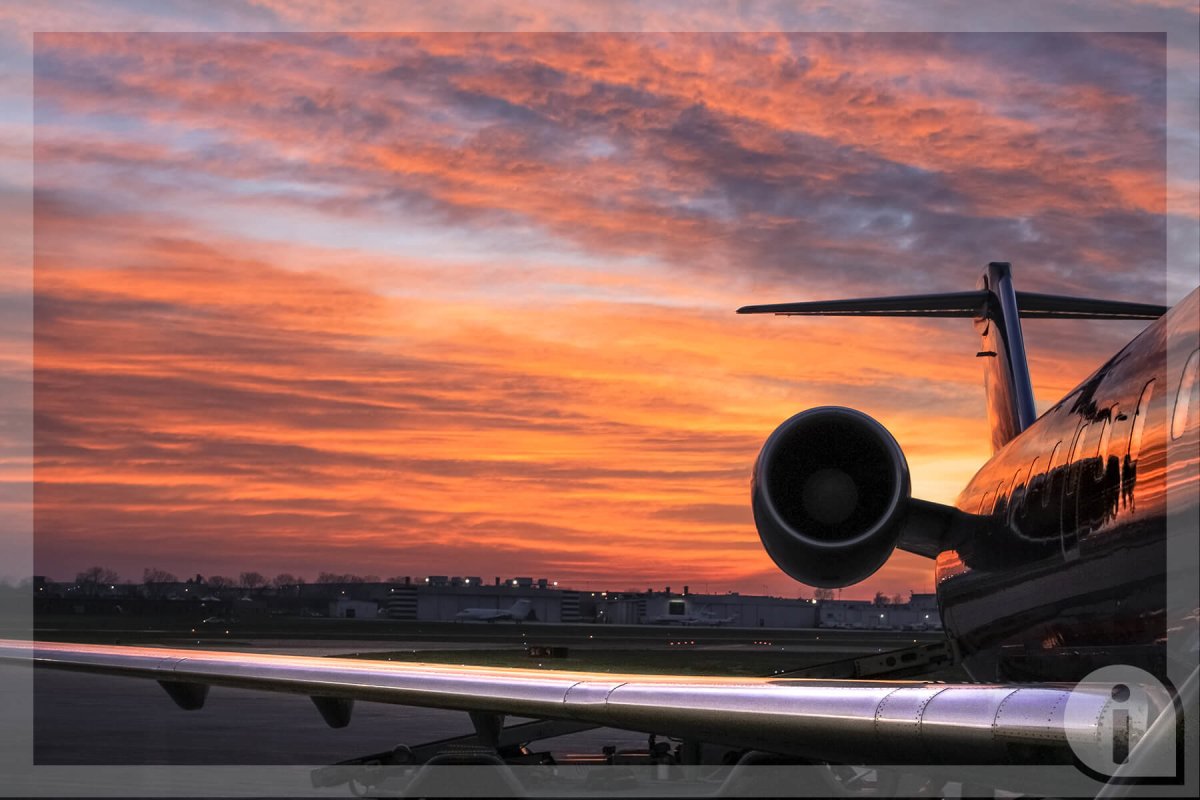Acquiring a puppy and thus expanding the family is associated with a lot of joy. As a new dog owner, however, there are a few things to consider in everyday life. What needs does the puppy have? How do I ensure the right puppy training? Which diet is suitable for the puppy? In today's interview with vet Philipp Schledorn, AniForte® talks about what you should pay attention to in the puppy's first few weeks.
AniForte®: First of all, the question: up to what age do we actually speak of a "puppy"?
Vet: There are three so-called "puppy phases". The first phase, the "newborn phase", begins immediately after birth and lasts until the dog is 14 days old. The focus is on basic needs such as eating, sleeping and eliminating. This is followed by the "transition phase" from day 14 to day 21, when the puppy's perception of its surroundings becomes increasingly important. The dog then becomes really curious about everything around him from the 3rd - 18th week of life. This period is known as the puppy's "socialization phase".
AniForte®: Why is this curiosity important in the "socialization phase"?
Vet: For the dog, integration into society (= socialization) begins in this phase. The experiences he has with people, conspecifics, food, environmental influences and situations during this period are crucial for the rest of his life. After all, the puppy's brain is still growing and every external influence is stored and later recalled in similar situations. These weeks are therefore extremely important for the relationship between the puppy and the human at its side.
AniForte®: What daily necessities does a puppy need?
Vet: Sleeping, eating, playing - that is the main content of a dog's life in the first few weeks. Accordingly, a sleeping place for the puppy should always be prepared in a quiet, warm place. However, avoid placing the little rascal's sleeping area next to the heating. If left on continuously on cold days, this heat can dry out your four-legged friend's mucous membranes and make him even more susceptible to colds and the like. Make sure that the bowl at the feeding station is non-slip and stable. With puppy toys, you should make sure that they cannot be swallowed, as they are then unsuitable.
AniForte®: How and when do I start puppy training?
Vet: Puppy training begins on the first day of moving in. The aim is to teach the dog rules and rituals in a playful way. You should always be consistent but loving. The first step is to teach the puppy the hierarchy in the family so that the little rascal can adapt and knows where he stands.
AniForte®: How do I get the puppy to recognize me as "higher in rank" through puppy training?
Vet: The best way to achieve this is with clear and consistent communication. You convey to the puppy that he is the lowest-ranking individual in the family by demonstrating "leadership qualities" in the truest sense of the word. The puppy should recognize that you are trustworthy. This is achieved through gestures, facial expressions and clear signals. Dogs sense when you yourself are becoming insecure. Dominant gestures, on the other hand, convince him of your superior position. These should of course be affectionate, such as touching the animal's entire body - this conveys superiority to the puppy without attacking or unsettling it. So-called "taboo zones", such as the bed, where the puppy is not allowed to go, also give the young dog the feeling that you are the "ruler" of the group.
AniForte®: How do I teach the puppy how to interact with other dogs?
Veterinarian: In the socialization phase, the puppy learns the basic rules of interaction with other dogs in play and in scuffles. The most important behaviors include bite inhibition, submission and dominating the other dog. It is wrong to assume that the puppy is under so-called "puppy protection" when encountering other dogs. This only exists for dogs within a pack. Even a puppy will have to be submissive to other dogs in order to avoid triggering aggression. As the owner, you are responsible for this, as the puppy will adopt your attitude towards others: If you are calm when meeting other dogs, this is the best prerequisite for a healthy learning process.
AniForte®: How do puppies learn commands and rules through puppy training?
Vet: Dogs basically learn through associations. This means that they associate one specific event with another. This is why praise is very important in dog training. Puppies that have been praised for a behavior will repeat it and do it more often. You can take advantage of this by rewarding them with your voice, cuddles, toys or food every time they do something right, for example. Conversely, it is also a good idea to let your puppy do things like "sit" before giving him food to learn commands.
AniForte®: As a dog owner, how can I create the best conditions for quick learning during puppy training?
Vet: First of all, by getting rid of the idea that learning processes have to happen quickly. These things take time and patience. You can support your puppy by initially letting him learn in "safe" places, e.g. within your own four walls. Any distraction and excitement in the wild will have a negative effect on his attention span. If you then approach the training yourself in a good mood, nothing much should go wrong.
AniForte®: The learning process during puppy training also includes housetraining - what do I need to bear in mind?
Vet: House-training should always be non-violent and loving. Dogs are not house-trained by nature, but humans are responsible for this learning process, in which the animal is taught to consciously control its sphincter. This also takes a lot of time, but is well worth it. A puppy should be given the opportunity to defecate about every two hours. Remember to praise your puppy lavishly after he has finished his business.
Twenty minutes after eating, drinking or playing and immediately after waking up, you as the dog owner must also ensure that the puppy can urinate. If he shows restlessness or sniffs around, these can also be signs that it is time to take him outside. Some dogs are particularly sensitive or easily distracted, so a quiet environment is important at first. Tools such as special dog toilets or puppy pads are recommended for the transition if your puppy is too restless outside at first.
AniForte®: How do I deal with my puppy relieving himself indoors?
Vet: This can happen frequently, at least in the first few weeks. You should then keep calm and not scold or even punish him. The puppy doesn't understand these methods and is more likely to lose trust in you. I have heard of cases where young dogs have had their heads pushed into their "mishap" to show them what they have done. This is a human way of thinking that is not transferable. The puppy understands praise much better than punishment.
AniForte®: When can I start taking my puppy outside?
Vet: From the very beginning. This is more a question of the correct dosage. It is important for the puppy to get to know the environment outside its own four walls and garden. However, in order to make young dogs adaptable and resilient for later, you should pay attention to how much stress you want to put your pet through. In the first few weeks, a walk of no longer than fifteen minutes is recommended. But this confrontation with the outside world is essential. In addition to the variety of ground structures and visual and acoustic stimuli, the puppy also encounters other people and animals on these outings and trains its movement sequences (e.g. by climbing).
AniForte®: Which situations should I avoid on such walks with my puppy and which should I look for?
Vet: Quiet places such as woods or meadows are just as recommended as busy streets or challenging, crowded stores. Only in moderation, of course. What is crucial for all new situations that the puppy gets into with you is your attitude. Exude calmness and naturalness, regardless of whether the streetcar is ringing or the construction noise is booming. Observe your dog's reactions carefully and leave the situation if he shows signs of fear or stress, such as panting, howling or trembling. The puppy should also have enough time on these walks to pick up scents through its nose. This helps him to familiarize himself with his surroundings.
Anything that the young dog stores as familiar during the socialization phase will not cause any problems later on. That's why I recommend short trips to busy crossroads, paths used by joggers and cyclists or to a children's playground or shopping center. Try to forget that you are busy training your puppy. If your behavior is aimed at the reaction of other people, your dog will notice. You shouldn't care what other people think, concentrate on being consistent with your puppy. As difficult as that can sometimes be.
AniForte®: What other ways are there to keep my puppy busy?
Vet: The best way for a puppy to learn is through play. Skill games, for example, encourage the innate learning instinct. When playing search games, you should make sure that the puppy toy is not too small. You should also be careful if your puppy plays on slippery floors, such as tiles or laminate, as these can damage its joints. When playing running and exercise games, you should always make sure that they do not lead to your pet becoming completely tired. Also avoid steps or steep inclines. Extreme exertion such as dog sports or cycling are of course also prohibited with a puppy.
Play should never lead to the animal being overtaxed, but should be well-considered activities that encourage your puppy. A puppy school can also teach you the most important lessons in basic training. This will support you in dealing with your new pet and provide you with helpful tips and specific rules of conduct.
AniForte®: Should a young dog be given special food for puppies?
Veterinarian: As with humans, the right composition of fats, carbohydrates, fiber, minerals, trace elements and vitamins must be ensured in dog food. The ingredients of dry or canned food are usually listed in detail on the packaging. Special puppy food can also be useful, as it contains particularly high levels of calcium and vitamins, which promote growth. If the puppy comes from a breeder, the diet should be changed gradually. As every breed has its own particularities, it is also advisable to consult a vet or veterinary practitioner if you are unsure.
AniForte®: Finally, is puppy training feasible for every family?
Vet: As long as the members of the family have enough time and patience, definitely. Of course, the spatial situation also plays a role. But the attitude of the people who bring a puppy into the home is crucial: If they radiate calm and react calmly to minor mishaps, then your dog will also quickly learn that family means security and rules.
AniForte®: Thank you very much for the interview!
Vet: Thank you for the invitation and I wish all readers a good start with their new housemates!



